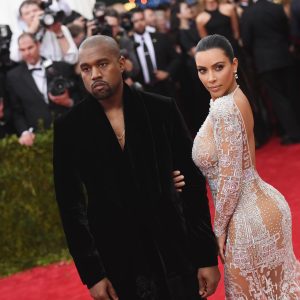In the vast tapestry of celebrity culture, few names shimmer as brightly as Kim Kardashian’s. With her meteoric rise from reality TV star to self-made billionaire, she has become an emblem of modern entrepreneurship and influence. Yet, beneath the glitz and glamour lies a recent revelation that has ignited controversy and sparked a crucial dialogue: Kardashian’s admission of appropriation.

The confession, a departure from the carefully curated image of success, offers a glimpse into the complexities of creativity and inspiration in the digital age. Kardashian, whose empire spans fashion, beauty, and social media, confessed to appropriating ideas and concepts without proper attribution. This revelation has sent shockwaves through her fanbase and the wider community, prompting reflection on the blurred boundaries between homage and theft in the pursuit of success.
At the core of this controversy is the ethical dilemma inherent in the creative process. While Kardashian’s achievements are undeniable, her acknowledgment of appropriation raises profound questions about integrity and accountability. In an era where image reigns supreme, the allure of fame and fortune can sometimes overshadow the principles of authenticity and originality.

Moreover, Kardashian’s confession underscores the pervasive nature of appropriation in the age of digital connectivity. With a wealth of information and inspiration at our fingertips, the temptation to borrow without acknowledgment has become increasingly prevalent. This phenomenon not only erodes the concept of intellectual property but also perpetuates a culture of uncredited borrowing that undermines the contributions of genuine creators.
In response to the backlash, Kardashian has issued statements expressing regret and a commitment to rectifying past missteps. However, the incident serves as a sobering reminder of the importance of transparency and ethical conduct in the creative sphere. As society grapples with the complexities of digital culture, the need for clear guidelines and ethical frameworks becomes more pressing than ever.

Furthermore, Kardashian’s admission of appropriation highlights broader issues of power and privilege in the creative industries. As a prominent figure with immense influence, her actions carry weight and set precedents for aspiring entrepreneurs and content creators. By acknowledging her mistakes and committing to change, Kardashian has the opportunity to lead by example and foster a culture of respect and integrity within her sphere of influence.
Ultimately, the controversy surrounding Kardashian’s admission of appropriation serves as a wake-up call for the entertainment and fashion industries. It underscores the importance of ethical conduct and responsible innovation in an age where inspiration is just a click away. As society navigates the complexities of creativity and entrepreneurship, lessons drawn from this controversy can guide us toward a future where integrity and originality are valued above all else.





